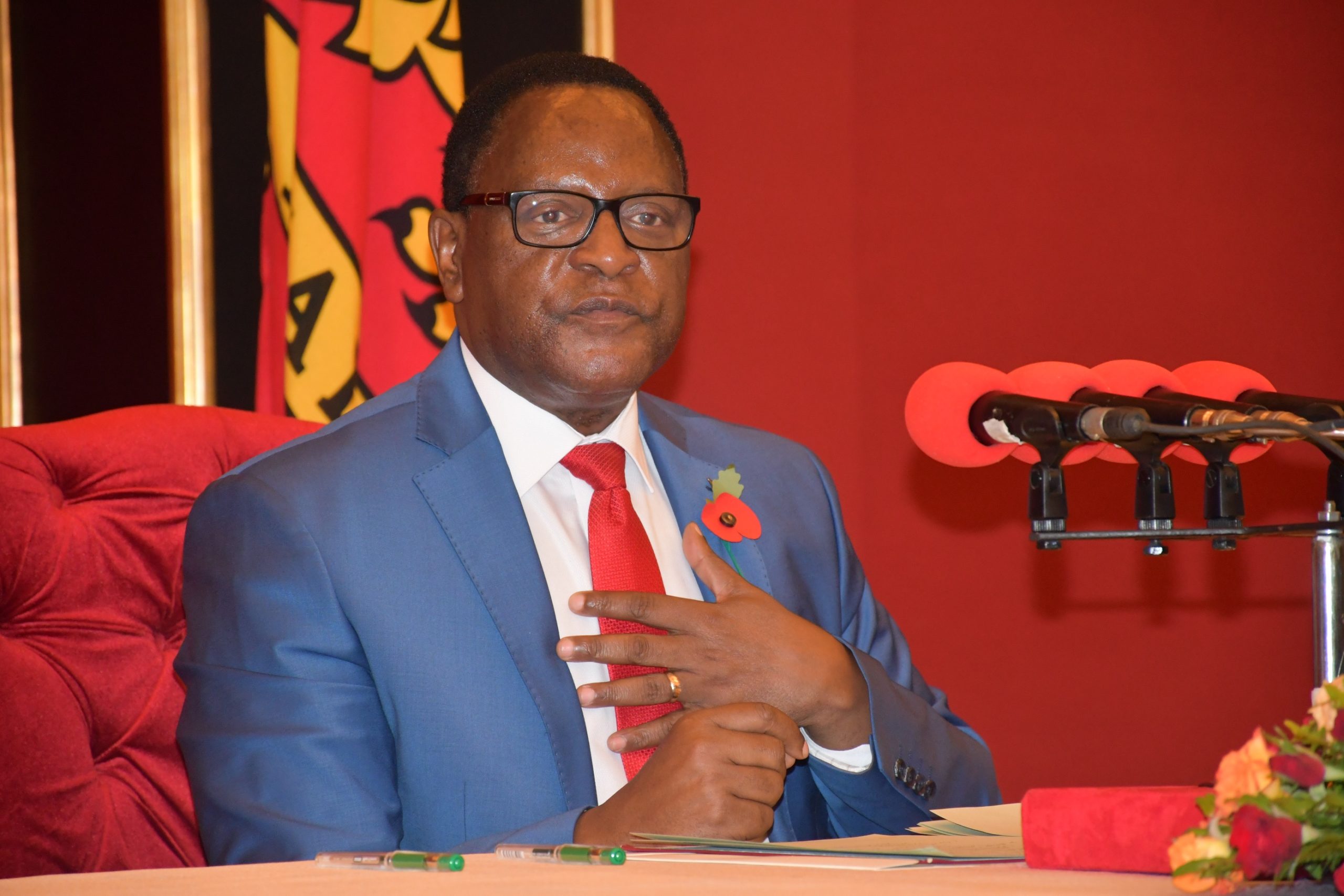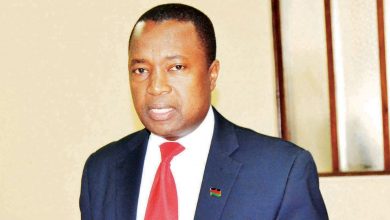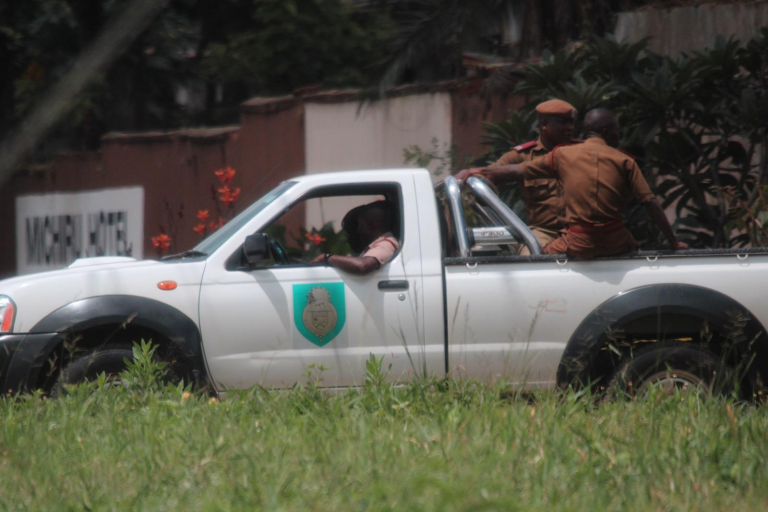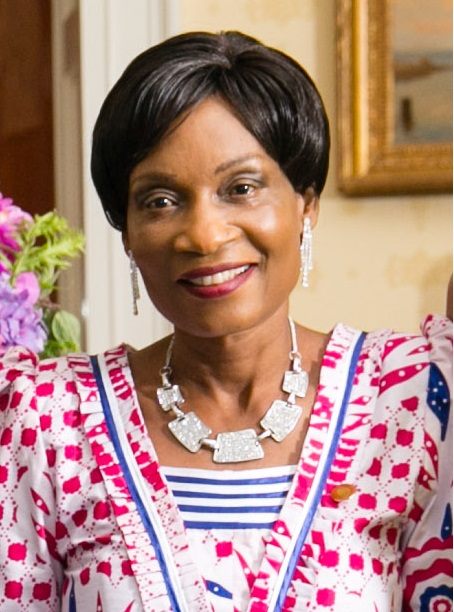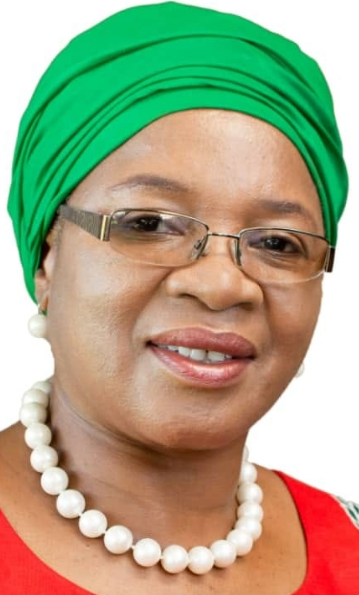…Chakwera U-turns on suspending Chizuma
…President meted public lynching
…AG and DPP increasingly turning adversarial
BY GOLDEN MATONGA
For months, President Lazarus Chakwera opted to turn a blind eye—at least publicly—to the Zuneth Sattar state capture investigation by the Anti-Corruption Bureau (ACB) and Britain’s National Crime Agency but a leaked phone conversation prompted the president out of his cocoon Monday night.
The president was advised to fire Chizuma by his legal advisors, but instead opted to reprimand her both in private and public, but opted to fire his cabinet instead.
The move potentially undermines the anti-corruption czar who, however, increasingly faces further challenges from the offices of the Attorney General and Director of Public Prosecutions (DPP) which have taken several positions contrary and detrimental to the ACB’s quest to prosecute those implicated in the Sattar case.
The AG and DPP famously isolated the ACB in announcing a general amnesty in the Sattar investigations, without consulting the ACB or giving it a prior warning.PIJ understands both the AG and ACB have previously advised against cooperation with the UK agents on the matter.
The PIJ can exclusively reveal the DPP has now rejected a request for consent to prosecute, among others, Sattar’s agent Kumar Sreedharan, also known as Ashok Nair, who was arrested alongside Minister of Lands Kezzie Msukwa.
“The DPP has informed the ACB boss that after perusal of the documents submitted for purposes for obtaining a consent to prosecute. We are unable to make an independent and informed decision on the granting of the consent to prosecute,” said a source close to the matter.
The source says the DPP cited the absence of a full investigations report as contrary to the delivered interim report on the investigations, as reasons to reject prosecution of Nair, days after the High Court handed ACB a fresh blow after releasing Nair on bail pending a judicial review into his arrest alongside the Lands Minister Msukwa.
That, coupled with the actions of other of the AG and DPP on the matter, has left the ACB boss isolated and at loggerheads with the other interested officials over handling of the case. Several meetings have been held in which disagreements on viewpoints were aired.
In an interview with PIJ held before the emergence of the audio recording, Attorney General Thabo Nyirenda confirmed the DPP and himself had disagreements with the ACB over handling of the Sattar investigation.
“We did express our concern on seeing information on the case on social media without being briefed about what is going on. The ACB director asks us whether we are saying that she must stop, and we were not saying that she must follow criminal procedural laws. We specifically said that we all fully appreciate that the law confers on the ACB the mandate to operate as an independent body, but where it enters into an agreement or MOU with a foreign cooperating partner, the Attorney General ought to be involved under the Mutual Assistance in Criminal Matters Act,” said the AG.
The president’s intervention on Monday came amid public pressure but was undoubtedly prompted by the recording which surfaced on Sunday morning. The president by Monday had summoned Chizuma and then Minister of Justice Titus Mvalo for a meeting where he reprimanded the ACB boss.
Yet, even when Minister of Lands and Housing Kezzie Msukwa was arrested for receiving bribes from Sattar to interfere on his behalf in land wrangles the Malawian born businessman is embroiled in, the President, contrary to previous precedence set when other cabinet ministers and aides were arrested, looked the other away.
But all that changed on Monday following emergence of a leaked audio recording of a purported phone conversation between Chizuma and a third party that proved too embarrassing and painful for the president, and probably Chizuma herself.
“I must therefore confess that because of how vested I am in the fight against corruption, listening to some of the remarks Ms. Chizuma makes on that recording was painful,” the president said in a televised address.
The president did not fire Chizuma in the end but not before he read out several points she made on the call which he said legal advisors had counselled the president constituted a breach of the law requiring Chizuma’s removal from office.

In the recording, considered embarrassing both for the president and Ms. Chizuma, among others, Ms. Chizuma complained of lack of support from the executive, accused some judges of receiving bribes from Sattar and influential churches of cherry-picking those to criticize for embroiling in corruption based on church affiliation.
The president, however, opted to reprimand the anti-corruption official—further pledging to keep his watchful eye on her conduct in managing her office —but finally turned his sights on his cabinet, firing the entire cabinet and declaring there won’t be an immediate return for Msukwa in order to pave way for the probe.
“As a further demonstration of my resolve to confront all forms of lawless conduct by public officials,” said the president, “I wish to take opportunity to pronounce myself on two matters that affect my administration. First, in exercise of the powers vested in me by the constitution, I have dissolved my entire cabinet effective immediately, and all functions of the cabinet revert to my office until I announce a reconfigured cabinet in two days. That cabinet will exclude the current Minister of Lands, to allow him to answer corruption charges he is facing in court and clear his name there.”
But the president’s public lynching of Chizuma and promise to keep an eye on her conduct will do little to allay fears that the executive, members of the judiciary, and other powerful forces are hell-bent on stopping Chizuma from prosecuting the Sattar investigation.
Sattar, 41, is accused of bribing several government officials for over a decade in order to obtain hefty contracts in the Malawi government. Britain’s National Crime Agency (NCA) and Malawi’s Anti-Corruption Bureau (ACB) have launched an investigation into Sattar’s alleged state capture and one cabinet minister, Kezzie Msukwa was arrested recently by the ACB.
Initially, Chakwera wanted to suspend Chizuma a move that was likely going to ignite mass protests considering that there have been signs that the presidency and his Government are not willing to resolve the Sattar issue.

According to an earlier written speech which the State House wrongly sent to the media Chakwera says since the leaked audio borders on the matters of the law, it seems best to let it be determined independently by a review process that will give Chizuma a fair hearing and presume her to be innocent until proven guilty.
“As such, pursuant to Section 6(3) of the Corrupt Practices Act, I have placed Ms. Chizuma on immediate suspension pending a review of her conduct by a professional and independent committee that will then present its findings,” said Chakwera.
True to fears that Chakwera’s Government is trying to replace Chizuma with someone who will not prosecute Sattar, in the initial speech the president indicated the same:
“In the meantime, I will appoint a suitable candidate to lead the Anti-Corruption Bureau in an acting capacity and continue where she left off.”

